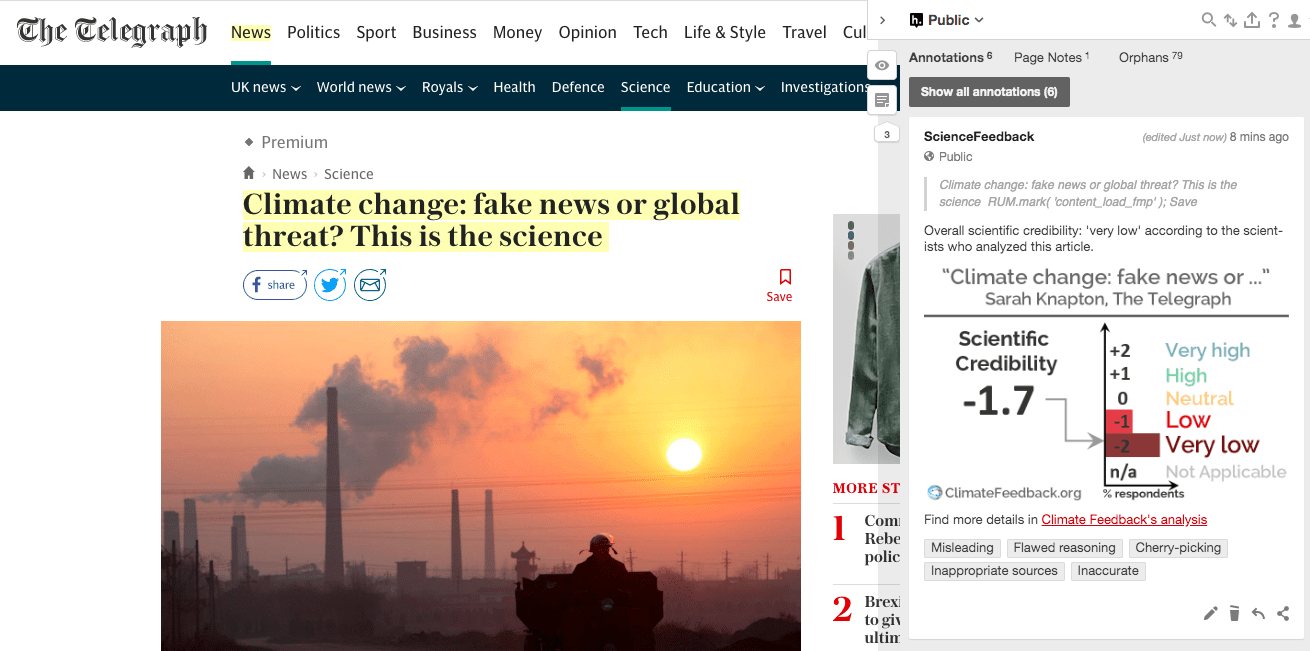
Telegraph article on climate change mixes accurate and unsupported, inaccurate claims, misleads with false balance
“This article is a prime example of false equivalence, putting fringe figures side by side with mainstream scientific findings while failing to distinguish between their respective credibility. It is rife with numerous factual errors and misrepresentations. Anyone unfortunate enough to read it will understand less of the science – as actually appears in peer-reviewed publications and conferences – not more.”
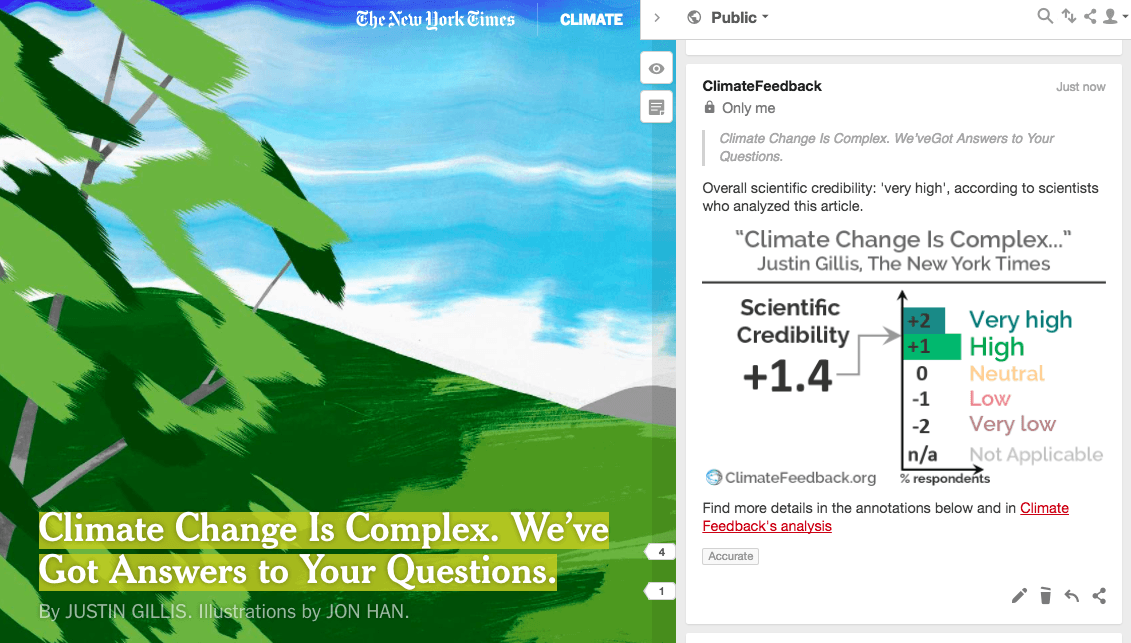
New York Times’ “straightforward answers” to common climate questions are accurate, too
This article in The New York Times serves as a primer by briefly answering seventeen basic questions about the cause and consequences of—and possible solutions to—climate change. Ten scientists reviewed the article, and generally found the answers to be highly accurate distillations of the research on that topic.
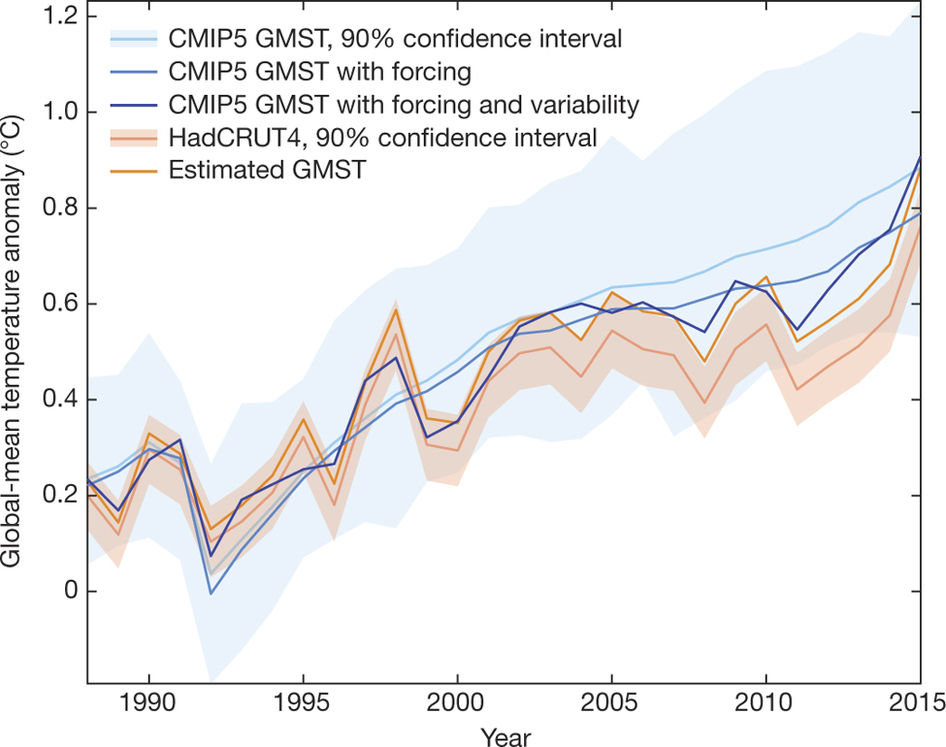
Daily Wire article incorrectly claims climate models have overestimated warming
Claim:
climate models have overestimated the amount of global warming and failed to predict what climatologists call the warming ‘hiatus’
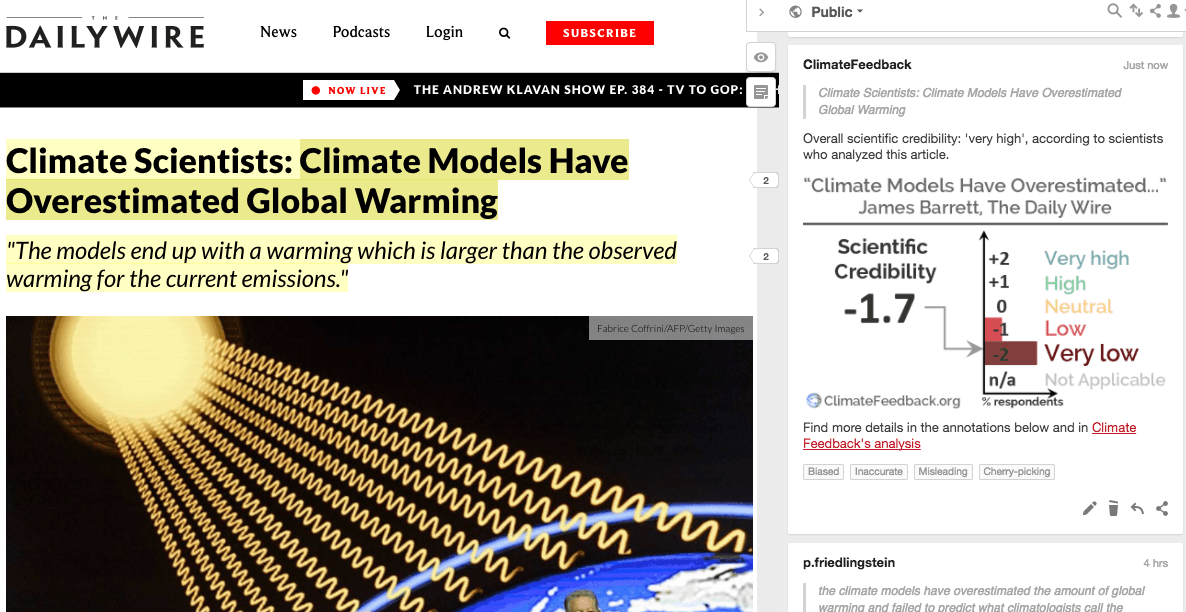
Daily Wire article misunderstands study on carbon budget (along with Fox News, The Telegraph, The Daily Mail, Breitbart…)
“The article selectively quotes from interviews and scientific papers to create the false perception that climate models significantly overestimate the rate of warming. The article also falsely implies that the cited paper is about the so called “hiatus” while the paper is actually about the carbon budget for the 1.5 ºC target.”
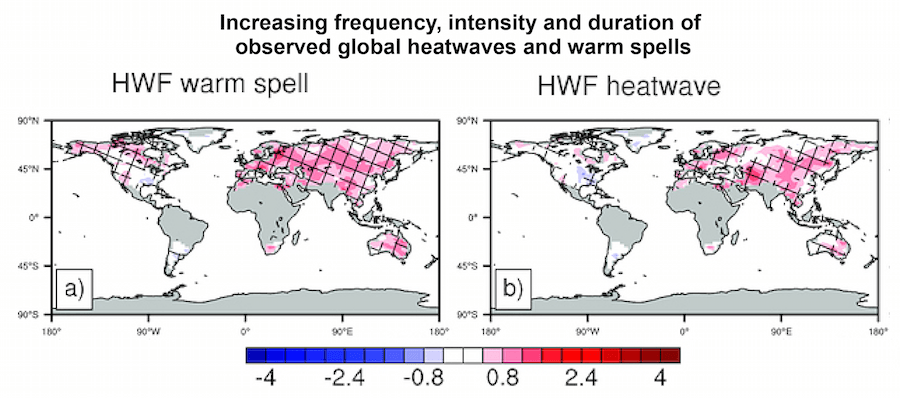
Some extreme weather events are clearly becoming more common, in contrast to Lord Lawson's claim
Claim:
The IPCC, the Intergovernmental Panel on Climate Change, which is sort of the voice of the consensus, concedes that there has been no increase in extreme weather events.
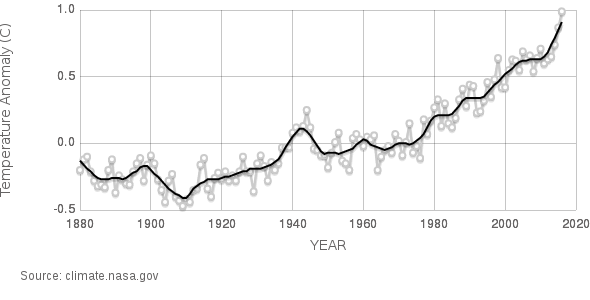
Lord Lawson falsely claims that global temperatures have declined over last decade
Claim:
according, again, to the official figures—during this past 10 years, if anything, mean global temperature, average world temperature, has slightly declined
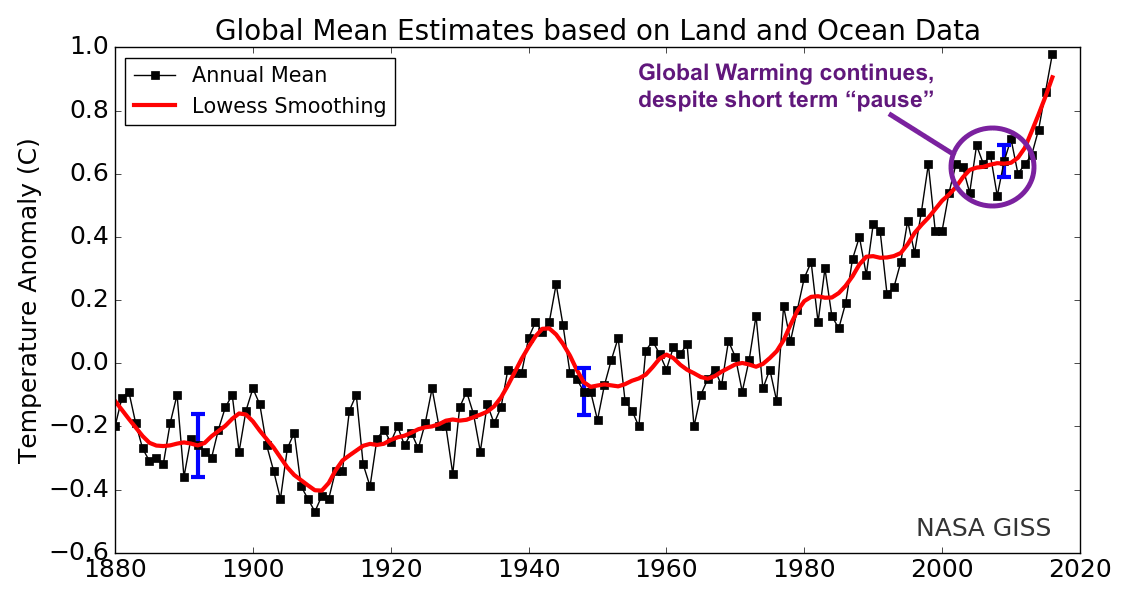
Global warming has not “ceased”, as Heartland Institute report falsely claims
Claim:
global warming ceased around the end of the twentieth century and was followed (since 1997) by 19 years of stable temperature
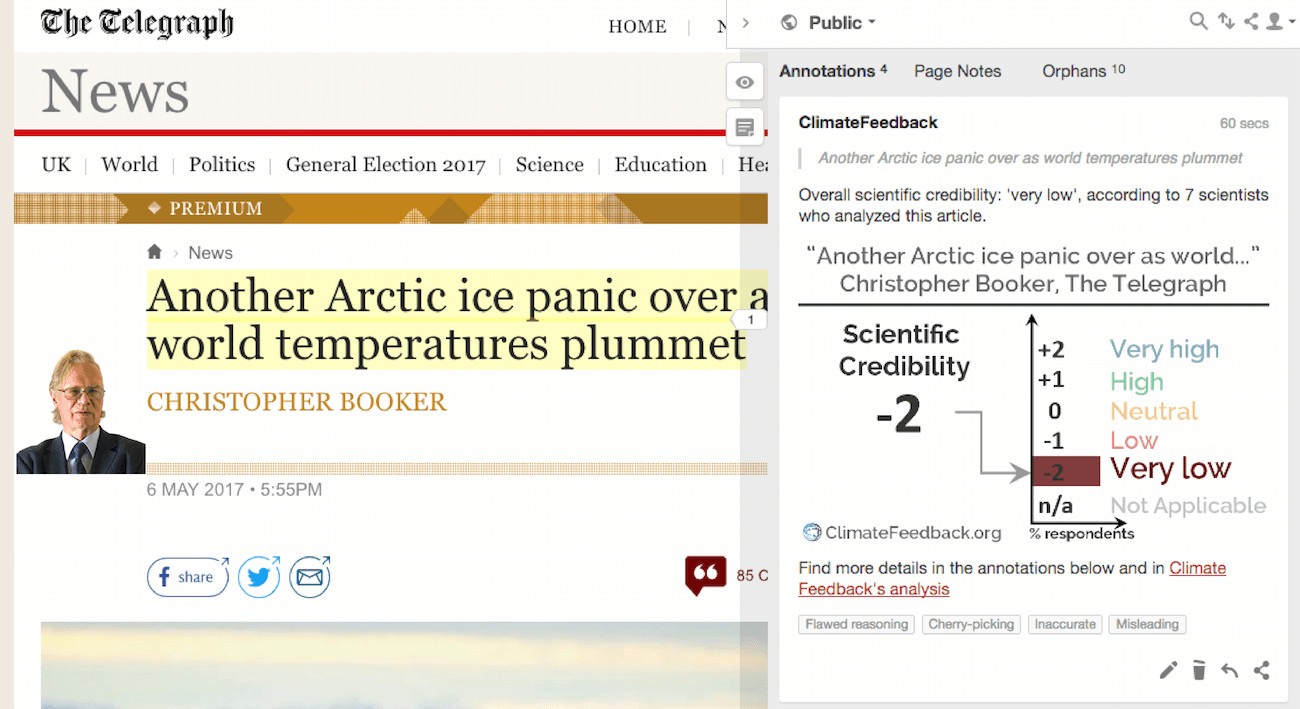
The Telegraph publishes false information about Arctic climate
“This article suffers from a common error in reasoning. The author focuses on individual “snapshots” of the state of the climate while ignoring the long-term trends. Those trends occur over many decades and must be observed/considered over those time scales.”
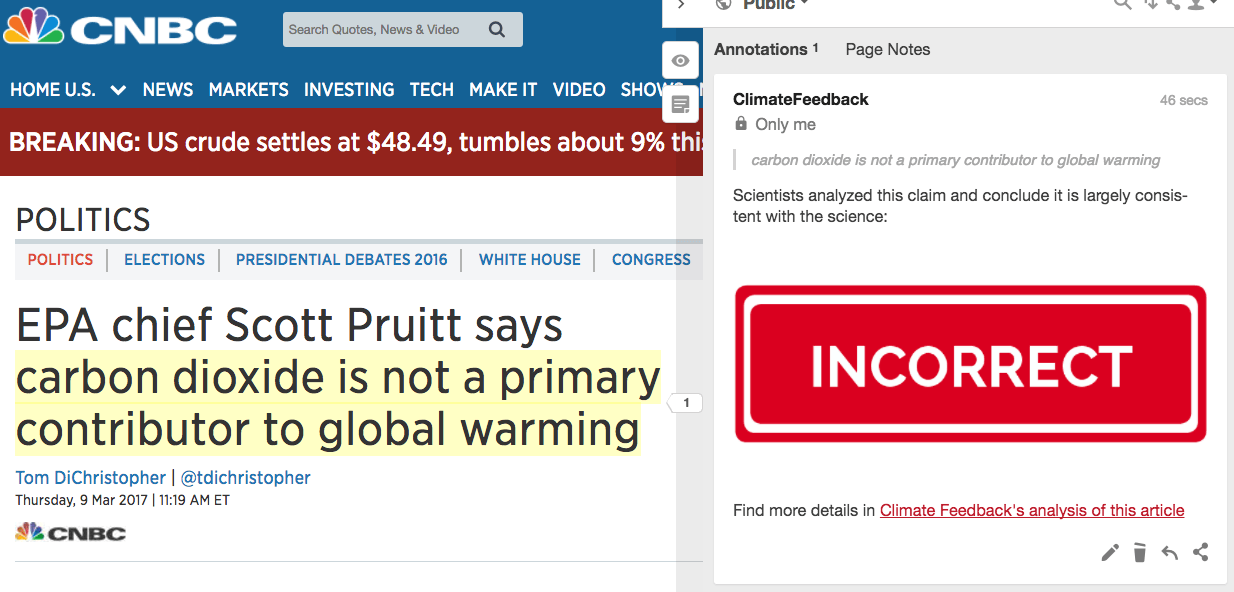
Science shows that humans are primarily responsible for climate change, counter to EPA Administrator Scott Pruitt’s claim
Claim:
I would not agree that [carbon dioxide is] a primary contributor to the global warming that we see.
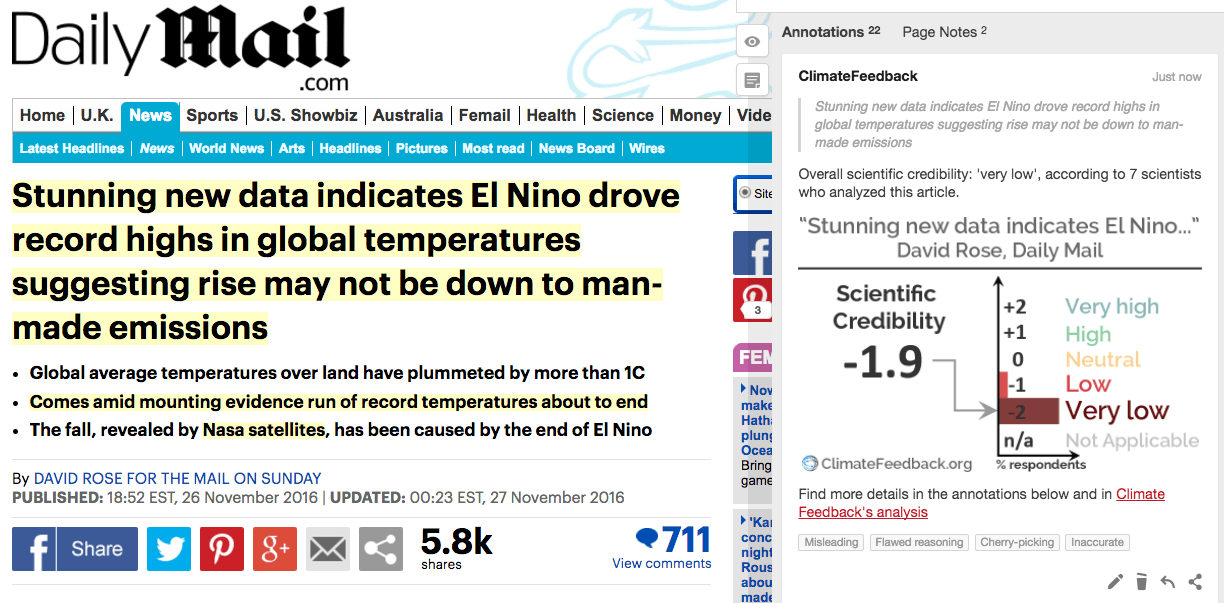
Analysis of "Stunning new data indicates El Nino drove record highs in global temperatures…"
This is an incredibly misleading article. It cherry picks a dataset taking measurements 2 miles up in the atmosphere only over land areas that disagrees with the other two datasets that examine the same values… The author is taking a normal modest cooling at the end of a large El Niño event and spinning it completely out of proportion.
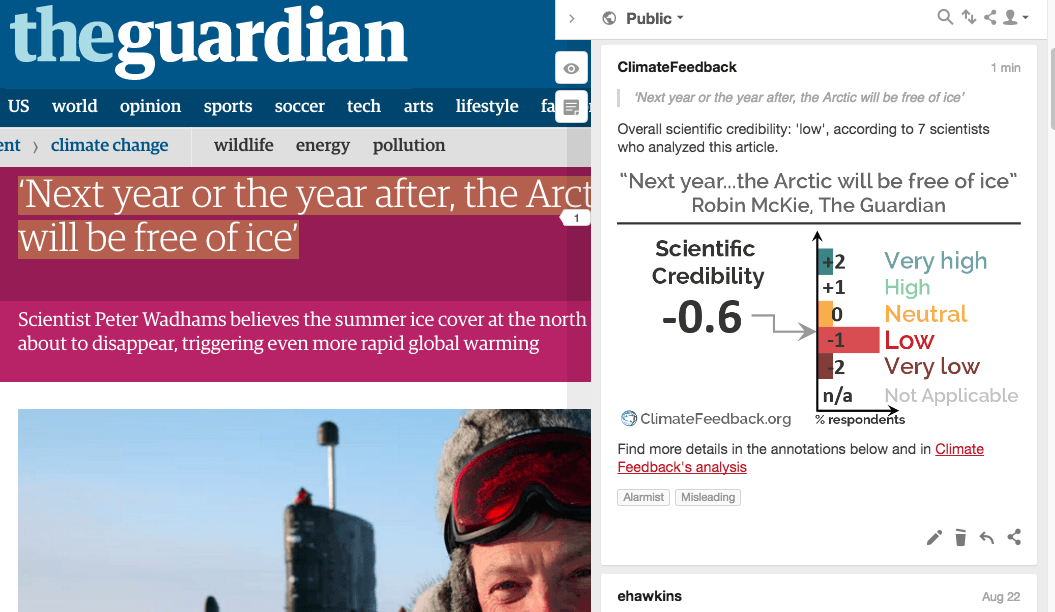
Analysis of "Next year or the year after, the Arctic will be free of ice"
“before propagating a marginal view, one should ensure having a very strong argumentation; in this interview no argumentation is put forward to support Peter Wadhams’ central claim. Wadhams’ alarmism is potentially harmful, because when such spectacular predictions are not realized some people may perceive the whole scientific community or science itself as untrustworthy.”

